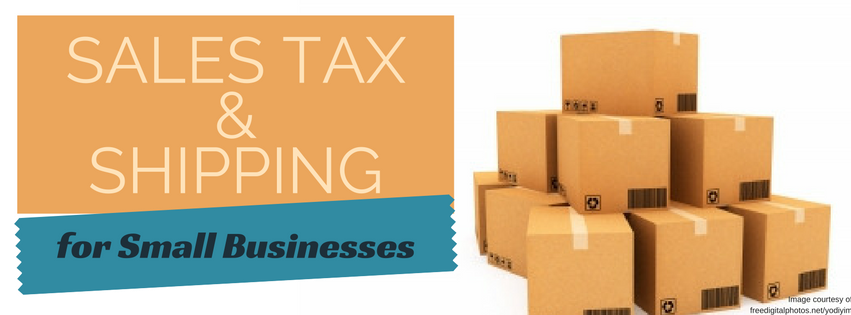I recently read a post on the Avalara website (this company has software that can help with your sales tax compliance) and I thought I’d share their information with you. As states continue to change rules on what is and isn’t taxable, it’s good to keep up with new information regarding issues related to the collection/remittance of sales tax. the blog states:
For small businesses selling goods online to remote customers, shipping is an integral part of doing business. And some states tax shipping costs just like they tax the purchase price for a product sold. But then again … some states don’t. If you want to get your sales taxes right and avoid noncompliance penalties, you need to know when sales taxes on shipping apply.
Know your nexus
As always, knowing your nexus is the first step to making sure you are within compliance, and shipping costs are no different. If you have nexus in a state, and that state taxes shipping costs, then you will be required to collect sales taxes on those orders.
These guidelines assume that you are directly using a common carrier, such as USPS, UPS or FedEx. Using a drop shipper or delivering products yourself may create different scenarios.
Know which states you need to watch out for
The following states tax shipping costs when they are part of an order, regardless of whether the shipping charge is part of the price of the item or listed separately.
Arkansas, Connecticut, District of Columbia, Georgia, Hawaii, Illinois, Indiana, Kansas, Kentucky, Michigan, Minnesota, Mississippi, Nebraska, New Jersey, New Mexico, New York, North Carolina, North Dakota, Ohio, Pennsylvania, Rhode Island, South Carolina, South Dakota, Tennessee, Texas, Vermont, Washington, West Virginia and Wisconsin.
Meanwhile, the following states do not tax shipping costs as long as the shipping cost is shown separately from the price of the item.
Alabama, Arizona, California, Colorado, Florida, Idaho, Iowa, Louisiana, Maine, Maryland, Massachusetts, Missouri, Nevada, Oklahoma, Utah, Virginia and Wyoming.
Several states have special conditions and restrictions that can make the taxability of shipping costs more complex. Some examples include:
- In the case of Florida, shipping is not taxed as long as the amount is shown separately on an invoice and the charge can be avoided by a decision or action by the purchaser, such as an option to pick up the item rather than having it shipped.
- In Maryland, shipping charges must be shown separately on the invoice, and they must also be separated from handling fees. If shipping charges are bundled together with handling fees, then the whole combined charge will be taxable.
- In Missouri, as of August 16, 2016, the rules state, “If shipping and handling charges are not part of the sale of tangible personal property, they are not subject to tax if they are separately stated. If shipping and handling charges are not part of the sale of tangible personal property but are not separately stated, they are subject to tax.”
- In Wisconsin, if a package includes both taxable and nontaxable items, only shipping charges for taxable items are subject to sales tax.
Keeping up with sales tax on shipping
When it comes to sales tax on shipping costs, there are a lot of rules to keep track of, especially if you have nexus in several different places. And these rules are always subject to change. But it’s crucial for small businesses to make sure they are following these rules. Audits, back payments or fines can be overwhelming for small businesses with limited resources.
One tool that small businesses can use to make sure they get shipping cost sales tax right is automation, such as the sales tax software offered by Avalara. Automation can help you make sure you’re charging the right sales tax rates every time on both sales and shipping charges. Learn more.
Scott Peterson is the Director of Government Affairs for Avalara, Inc. In his role, Scott leads Avalara’s effort to be the first name in sales tax automation. Prior to joining Avalara Scott was the first Executive Director of the Streamlined Sales Tax Governing Board. For seven years Scott acted as the chief operating officer of an organization devoted to making sales tax simpler and more uniform for the benefit of business. Before joining Streamline Scott spent ten years as the Director of the South Dakota Sales Tax Division where he was responsible for the state sales and use tax, the state’s contractor’s excise tax, the sales and use tax for over two hundred cities, and the sales and use tax for four tribal governments.
Photo courtesy of freedigitalimages.net/yodiyim
